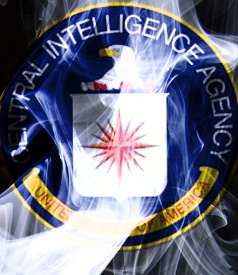
By Melvin A. Goodman t r u t h o u t
It is time for serious soul-searching regarding the role of the CIA and the intelligence community. Last month’s operational and intelligence failures led to the deaths of seven CIA officers in Afghanistan and might have resulted in nearly 300 deaths on a Northwest Airlines plane headed for Detroit.
It is particularly shocking that President Barack Obama’s chief of counterterrorism, John Brennan, conceded that the latter failure was caused by the fact that there was “no one intelligence entity or team or task force assigned responsibility for doing a follow-up investigation” of the considerable intelligence that was collected. It is unbelievable that the president had to order the creation of a system for tracking threat reports. The failures beg the question of what have we learned since 9/11.
Previous CIA failures regarding the unanticipated decline and fall of the Soviet Union, the terrorist attacks of September 11, 2001, and the run-up to the Iraq War demonstrate a $75 billion intelligence enterprise that can provide neither strategic nor tactical warning to policymakers and is reluctant to provide uncomfortable truth to power.
The serious problems that need to be addressed include the important nexus between intelligence and policy – and the need for a CIA that is not beholden to policy or political interests; the militarization of the intelligence community – which must be reversed; the lack of Congressional oversight – which must be corrected, and the decline of operational tradecraft – which must be investigated.
Before addressing reform in Part II, however, we must first confront the mythology that surrounds the intelligence enterprise.
The Greatest Myth: The 9/11 Commission offered insight into the systemic problems of the CIA and the intelligence community. The Intelligence Reform Act of 2004 solved the problems that had been exposed by the 9/11 Commission by creating a director of national intelligence, the so-called intelligence tsar. In fact, the 9/11 Commission failed to use the powers it had been given to explore the reasons for the 9/11 intelligence failure.
Read more at t r u t h o u t
ATTENTION READERS
We See The World From All Sides and Want YOU To Be Fully InformedIn fact, intentional disinformation is a disgraceful scourge in media today. So to assuage any possible errant incorrect information posted herein, we strongly encourage you to seek corroboration from other non-VT sources before forming an educated opinion.
About VT - Policies & Disclosures - Comment Policy



